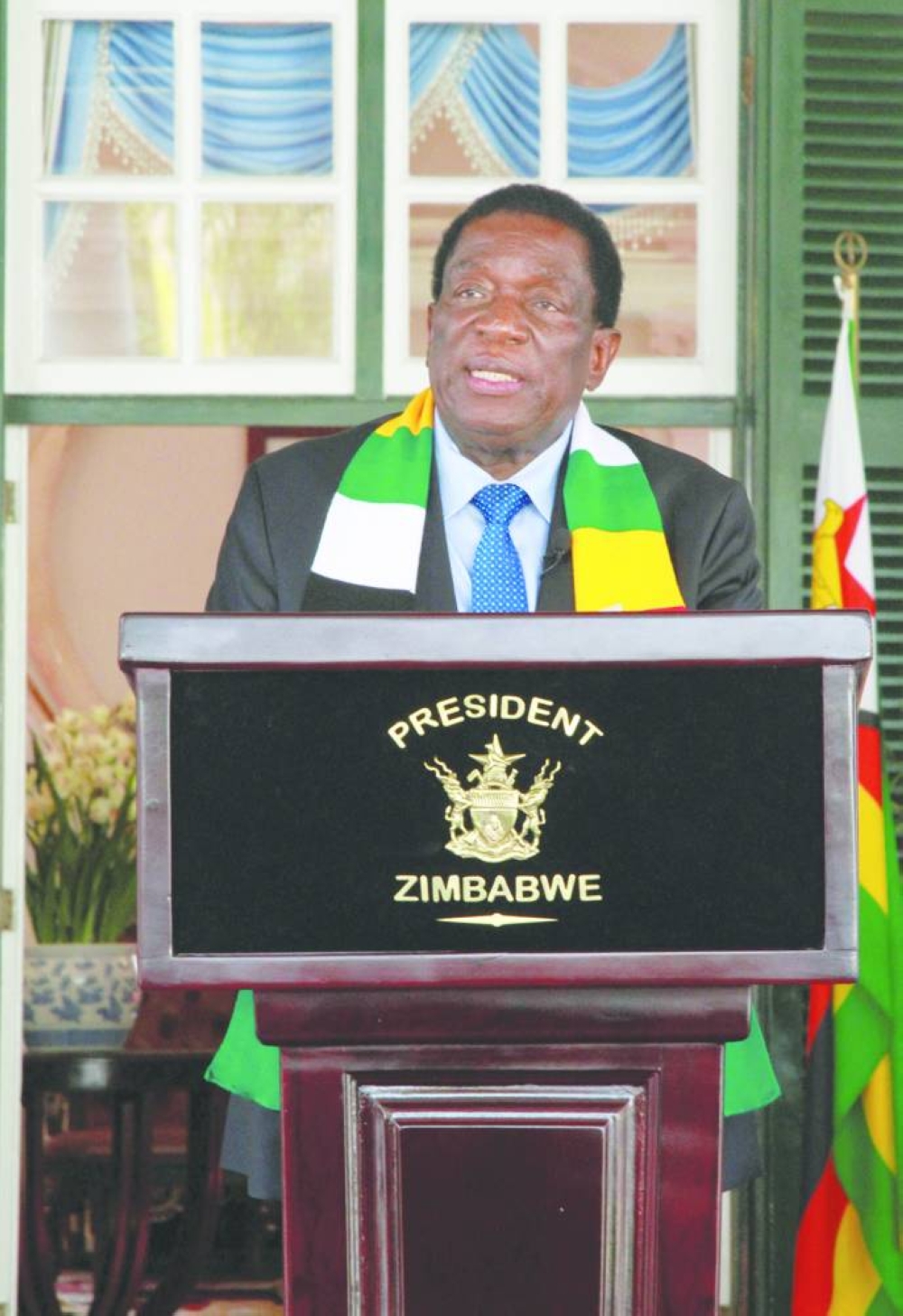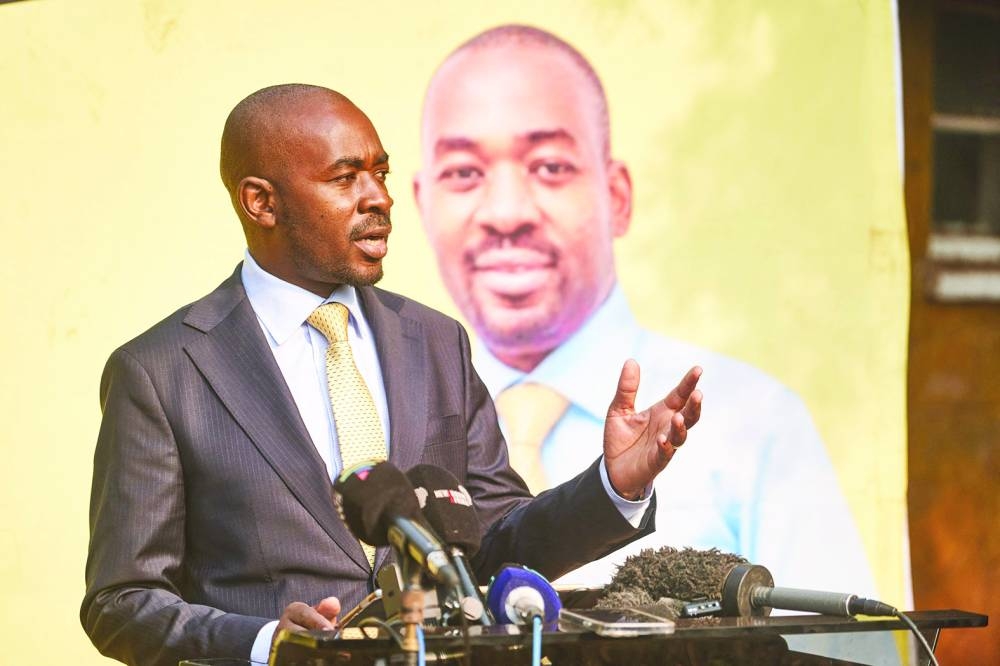Zimbabwe’s elections commission said late on Saturday that incumbent Emmerson Mnangagwa had won this week’s presidential election with roughly 53% of the vote, but the opposition and analysts immediately questioned the result.
Mnangagwa, nicknamed “the crocodile”, took over from long-time leader Robert Mugabe after a 2017 army coup, and was widely expected to secure re-election for a second term as analysts said the contest was heavily skewed in favour of the ZANU-PF ruling party, which has been in power for more than four decades.
The Zimbabwe Electoral Commission (ZEC) said Mnangagwa’s main challenger, Nelson Chamisa, who leads the opposition Citizens’ Coalition for Change (CCC) party, secured 44% of the presidential vote.
ZEC chairwoman Justice Chigumba said Mnangagwa had garnered more than 2.3mn votes and Chamisa more than 1.9mn.
By securing more than half the votes cast, the president avoided a run-off.
Voter turnout was 69%, the commission said.
ZANU-PF supporters started singing and cheering at the results centre after the elections commission said Mnangagwa had won.
A CCC spokesperson said in a post on X, formerly Twitter, that the party rejected “any result hastily assembled without proper verification”.
Mnangagwa also narrowly defeated Chamisa at the last presidential election in 2018. The opposition alleges that election was rigged but the constitutional court upheld the result.
Yesterday Chamisa contested Mnangagwa’s official re-election and claimed victory.
“We have won this election. We are the leaders. We are even surprised why Mnangagwa has been declared a leader,” Chamisa, a lawyer and pastor, told a press conference in the capital Harare.
“We knew we were going into a flawed election. We have a flawed voters roll, a flawed delimitation report,” he said. “We had a flawed ballot. It was a flawed electoral environment.”
Earlier in the day at the presidential palace, Mnangagwa challenged those who contested his re-election to go to court.
“Those who feel the race was not run properly should know where to go to,” he said.
While the run-up to the election has been largely free from violence, the police routinely ban opposition rallies and arrest opposition supporters using Zimbabwe’s tough public order laws.
ZANU-PF denies it has an unfair advantage or seeks to influence the outcome of elections through rigging.
The head of the European Union’s observer mission on Friday said this week’s vote took place in a “climate of fear”.
Southern African regional bloc SADC’s mission noted issues including voting delays, the banning of rallies and biased state media coverage.
Nicole Beardsworth, a politics lecturer at the University of the Witwatersrand, said that she thought the ZEC announcement was probably a response to the critique by the Southern African Development Community (SADC) and other election observers.
“We all have a lot of questions about the speed with which the ZEC is announcing presidential results,” she said.
That did not stop Mnangagwa from thanking “various election observation missions who have been witnessing our electoral processes without bias”.
Although he also countered criticism by saying “we have demonstrated that we are a mature democracy”.
“As a sovereign state, we continue to call on all our guests to respect our national institutions,” he said.
Voting in this week’s presidential and parliamentary elections was meant to be wrapped up within one day on Wednesday, but it was extended into Thursday in some wards after the late distribution of ballot papers.
On the streets of Harare, some people expressed their disillusionment.
“The results were no good, there’s something wrong somewhere,” Godwell Gonye told AFP.
Another man, who asked to remain anonymous, confessed that he had not looked closely at the results.
“We accept them for as they are, it’s the decision of the majority and we respect it,” he said.

Mnangagwa: We ... are a mature democracy.

Chamisa: We had a flawed ballot. It was a flawed electoral environment.
